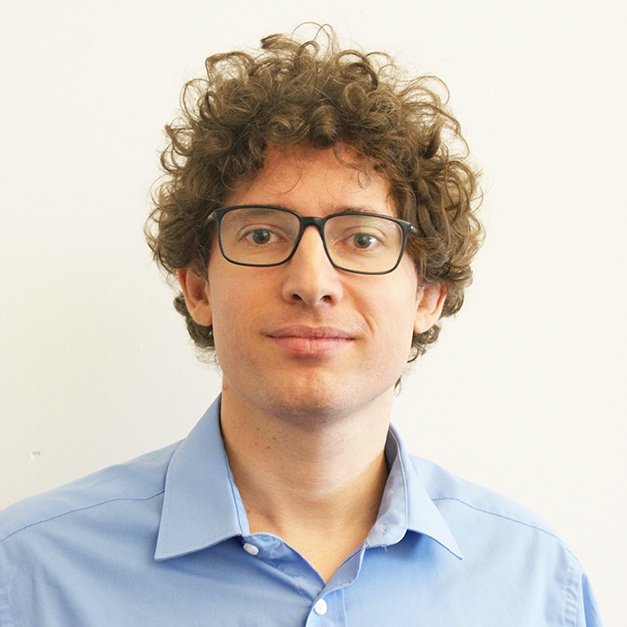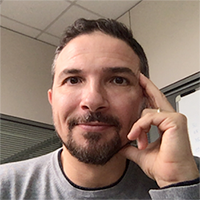RefResh 2022
3rd Workshop on Reframing Research
(@ TPDL 2022)
20 Sept. 2022, Padua, Italy Sadly cancelled
Over the last decade, research scaled up tremendously in terms of publications, research data, authors, contributing institutions, projects, and funding opportunities. Nowadays, research and scientific progress, with an estimated literature corpus of over 160 million articles, an annual increase rate of around 1.5 million publications, and a deluge of (open) research data and software, are characterised as multifaceted, high-frequency, global-scale phenomenona that can be approached computationally thanks to the vast amount of data available.
It is therefore of paramount importance to study such an articulated, evolving system in order to understand its dynamics, patterns, internal equilibria, and interactions among the diverse scientific actors and stakeholders. In particular, recent studies have proved that a holistic study of research as a complex phenomenon inserted in a delicate socio-economic and geopolitical context, rather than as an isolated, context-unaware system, can provide a deeper understanding of how research and researchers influence and are influenced by the world outside academia. An analysis as such can provide answers to socio-economic questions, frame academic research on the geopolitical canvas, provide insight on the factors that generate successful science, allocate better the available resources, and therefore benefit from greater impact and efficacy.
Workshop goal
The main objective of the proposed workshop is to bring together researchers from both quantitative and qualitative studies, practitioners and policy-makers working in the field of academic research, scholarly communication, and knowledge production to reframe research in relation to the underlying socio-economic and geopolitical canvas.
In particular, we intend to encourage interdisciplinary analysis that considers research as a complex system that influences and is influenced by society, economics, culture, and politics. This would include (computational) analysis of academic social networks and interactions among different research communities, exploration of factors influencing or preventing scientific collaboration and knowledge dissemination, exploration of trends, polarisations and biases in research, methodologies, indicators and measures for assessing research impact on society and industry, policies and practices fostering better scientific progress, and so on.
Topics
- Mutual influence of research, politics, and society
- The societal impact of research
- Research equality, fair opportunities and access to funding
- Gender, racial, geographical trends and biases
- Analysis of researchers mobility and careers trajectories
- Predatory publishing and bogus conferences
- Misrepresentation of science and public opinion mining
- Research and fake (scientific) news
- Acceleration of scientific progress
- Structure and evolution of research
- Cross-discipline evolution & diffusion of research concepts
- Impact of interdisciplinary research
- Analysis of patterns and trends in academia
- Application and analysis of the FAIR data principles
- Impact of Open Access and Open Science mandates
- Policymaking and strategic decisions for research
- Traditional publishing caveats, critiques and alternatives
Call for Papers
Important dates
Submission guidelines
The workshop welcomes contributions of the following kinds:
- Full research papers: up to 12 pages
- Short research papers: up to 6 pages
- Vision/position papers & extended abstracts: up to 4 pages
The workshop calls for full research papers, describing original work on the listed topics, and short research papers, on early-research results, new results on previously published works, demos, and projects. In accordance with Open Science principles, research papers may also be in the form of data papers and software papers (long or short). The workshop also calls for vision/position papers; these do not have to include results already, but should carefully elaborate about the motivation and the ongoing challenges of the described perspective. Finally, the workshop welcomes extended abstracts on previously published works and promising research directions.
Submissions must adhere to CEUR-WS single-columns format. An Overleaf template is available for LaTeX users, while Word submissions should use the template provided here. Submissions must be handed in for review as PDF files, and must be self-contained and in English. The ones that do not follow these guidelines, or do not view or print properly, may be desk rejected without review. Authors are responsible for ensuring that submissions adhere strictly to the required format.
Please, submit your contribution to RefResh via Easychair here: https://easychair.org/conferences/?conf=refresh22.
The submissions will be evaluated according to their significance, originality, technical content, style,
clarity, and relevance to
the workshop.
Please give a sufficiently detailed description of your work and your methods so we can adequately
assess its
relevance.
Please consider that reviewers will be from an interdisciplinary community.
RefResh also supports the
Linked Research principles; we
applaud authors having care to consider them when preparing their papers.
The proceedings of TPDL 2022 workshops and doctoral consortium will be published jointly in the
CEUR Workshop Series.
It is our intention to make available the accepted papers on this website and as an
Open Access post-print collection on
Zenodo as well.
For any further questions, feel free to contact us at refresh22@easychair.org
Program
RefResh 2022 is a co-located event of the
26th International Conference on Theory and Practice
of
Digital Libraries
(TPDL 2022), 20-23 September 2022, Padua, Italy.
The workshop will take place on the 20th of September.
Workshop organisation
Workshop Chairs

Andrea Mannocci
Istituto di Scienza e Tecnologie dell'Informazione (ISTI)
Consiglio
Nazionale delle
Ricerche (CNR)
Pisa, Italy

Francesco Osborne
Knowledge Media Institute
The Open University
Milton Keynes,
UK

Paolo Manghi
Istituto di Scienza e Tecnologie dell'Informazione (ISTI)
Consiglio
Nazionale delle
Ricerche (CNR)
Pisa, Italy
Program committee
- Isabella Peters (ZBW, Kiel, DE 🇩🇪)
- Feng Xia (Federation University, Victoria, AU 🇦🇺)
- Gemma Derrick (University of Bristol, Bristol, UK 🇩🇬)
- Philipp Mayr (GESIS, Cologne, DE 🇩🇪)
- Thomas Klebel (Know-Center GmbH, Graz, AT 🇦🇹)
- Patricia Feeney (CrossRef, UK 🇬🇧)
- Francesco Alessandro Massucci (SIRIS Academic, Barcelona, ES 🇪🇸)
- Jasmin Sadat (ERC Executive Agency, Bruxelles, BE 🇧🇪)
- Thanasis Vergoulis (Athena Research Center, Athens, EL 🇬🇷)
- Jodi Schneider (University of Illinois Urbana Champaign, US 🇺🇸)
- Angelo Salatino (Knowledge Media Institute, Open University, UK 🇬🇧)
- Marilena Daquino (University of Bologna, IT 🇮🇹)